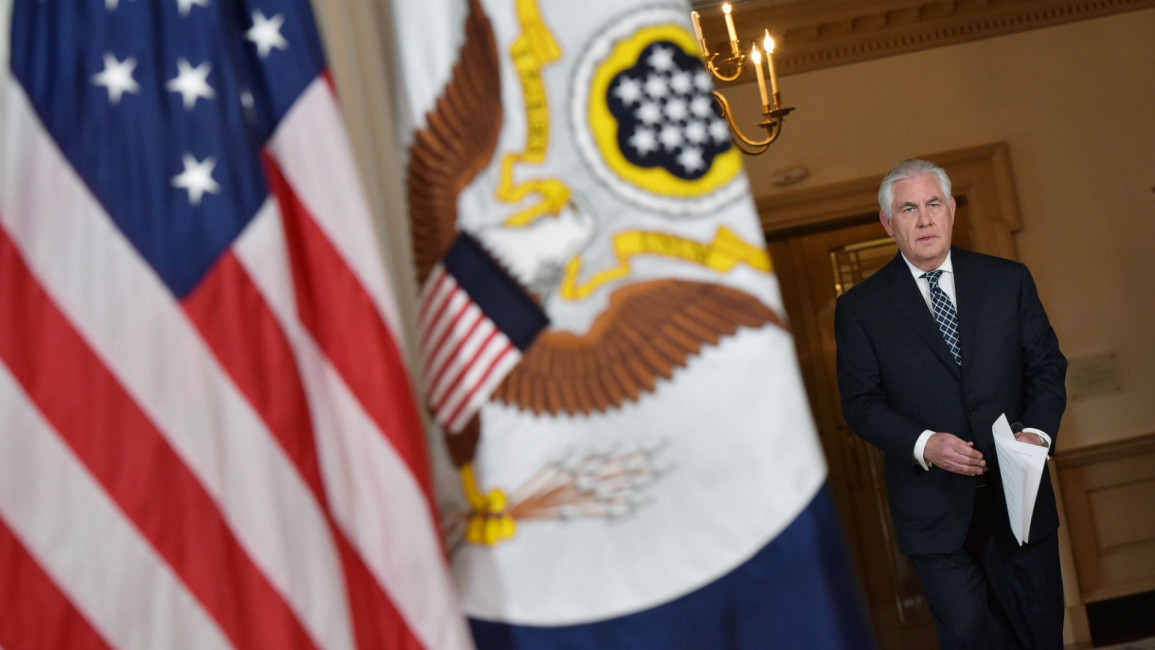US could revise 'failed' Iran nuclear deal
The accord had just been a way of "buying off" the regime, Tillerson argued, and would only delay Iran's development of a nuclear weapon that could threaten its region and the world.
"The Trump administration has no intention of passing the buck to a future administration on Iran," Tillerson told reporters.
Trump's spokesman Sean Spicer said the review would be conducted by US government agencies over the next 90 days and recommendations would be presented to the president as to whether to stick by the deal.
The Joint Comprehensive Plan of Action (JCPOA) signed between Iran and world powers restricts its nuclear fuel enrichment for 10 years.
But Tillerson said the JCPOA "fails to achieve the objective of a non-nuclear Iran" and was a product of "the same failed approach of the past that brought us to the current imminent threat we face from North Korea".
US allies like Israel and Saudi Arabia have long been concerned the JCPOA does not shut down Iran's nuclear industry entirely nor forever, and Obama's domestic critics accused him of appeasing a "terrorist state".
On Tuesday, the State Department confirmed that Iran is adhering to its side of the bargain in the deal struck with world powers in 2015 in return for sanctions relief.
Despite this, Washington has not ruled out breaking its own side of the agreement.
Even if the US does not reimpose the sanctions that it dropped under the deal, it could impose penalties on Iran for its alleged sponsorship of armed "terrorist" movements in other countries.
"We have to look at Iran in a comprehensive way in terms of the threat it poses and all areas of the region and the world. And the JCPOA is one element of that," Tillerson said.
"So we are going to review completely the JCPOA itself... It is another example of buying off a power who has nuclear ambitions and we buy them off for a short period of time and someone has to deal with it later."
The agreement was reached in Vienna in July 2015 between Iran and the UK, China, France, Germany, Russia and the US. It was implemented in January last year.The then US administration under President Barack Obama hailed it as a victory for diplomacy over the threat of another new war to disarm a rogue state in an already unstable region.
On the campaign trail, Trump was a strident opponent of the "worst deal ever negotiated" and many of his supporters, including some in Congress, have been lobbying to re-impose sanctions on Tehran.
This past week, Iranian President Hassan Rouhani said the country requires "no one's permission" to build up its missile capability, but insisted Tehran is committed to the nuclear deal.
"The preservation of the (nuclear deal) is one of the most important political and economic issues in the Iranian nation," he said.



